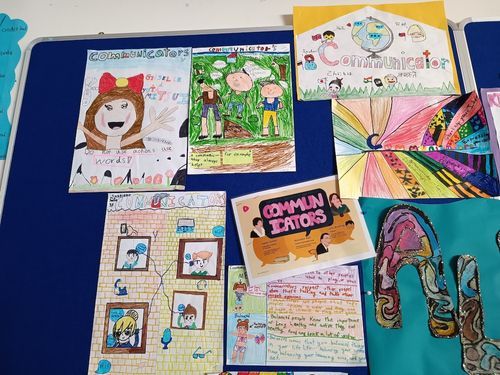Children are naturally curious. Soaking up knowledge, and constantly wondering about and marvelling at the world that surrounds them. They love to ask questions and have practical experiences. At OWIS, we believe in providing opportunities for learning at home that encourage discipline, self-management, and exploration.
The traditional days of the dreaded ‘homework’ have now evolved into a much more pleasant and valuable experience for the student, as well as their parents. ‘Homework’ has become fun as well as interactive and gives students the opportunity to direct their learning independently or with the help of their family. It is something to be excited about and creates an enjoyable learning experience.
A child’s perceptions are much more diverse and yet very much simpler than those of an adult, often perplexingly so. A child can swing inexplicably in his or her thinking – veering towards a different subject entirely or asking seemingly unrelated questions. And it is important for us to recognise this for what it is – a relentless thirst for more knowledge and experience in all its forms.
Children will often see the world from a different perspective to adults. They may have ideas that are more black and white, or on the contrary they may be in vivid colour with numerous ideas bouncing off their original thoughts. They want to know the ‘whys’ and ‘hows’ of the world. They take time organising the facts and new knowledge they’ve gained. They ask many questions that to an adult mind may sometimes seem completely off topic, but make sense to a new and inquisitive child. It is this way of thinking that makes children’s minds so receptive to new knowledge.

Seamless Learning
As such, in the best of all worlds, children who are at the stage of early childhood education will continue their seamless home learning in familiar surroundings. Many years ago, this used to be known as ‘homework’ and a great many adults today will instinctively react negatively to this word. ‘Homework’ often has negative connotations; parents may remember the hours they spent staring at books or trying to write essays. For many, the word brings the dreaded feeling of having their free time taken away from them. This is the reason why educators in general, and particularly we at One World International School, now call this process ‘learning at home’. We encourage children to take ownership of their ‘learning at home’ and to enjoy the experience.
Fortunately – and very happily – today the entire and very diverse process of ‘becoming educated’ has lost these kinds of imposed barriers. We talk to our children. We have time for them and we incorporate them into our lives, challenging them, comforting them, stimulating them, placating them and guiding them. We enjoy the company of children.
Home Learning at All Stages
Students in Early Childhood Education and up to Grade 1 are encouraged to read regularly with their parents or carers to develop a love of reading and books as a core skill that underpins our curriculum. They are encouraged to ask questions about the topics within their books. Parents or carers are asked to help with basic problem solving, for instance if they are struggling with new words. Reading skills are so important throughout life so promoting a passion for this from an early age is essential.
At Primary School level, we move into project-based learning, which extends and deepens conceptual understanding. The stress here is on the actual process of investigation and discovery, rather than the end result. These projects incorporate STEAM (Science, Technology, Engineering, Art & Maths) to embrace trans-disciplinary skills and knowledge within the curriculum. This allows students to take a wider look at the world, to ask questions and learn how all these different topic areas link together. Students are able to be hands-on with their learning and are encouraged to be driven to discover more about the topics they are studying.
However, at Secondary School level, we introduce a more disciplined approach to learning at home by the means of subject-specific projects to deepen and extend the skills and knowledge taught at school. This type of learning gives students the opportunity to spend time learning independently or seek support from their families. It encourages them to look at their strengths and to work on the areas where they need to further their knowledge. It is a time where they can focus on projects and learn key skills that will stay with them throughout their university study or career.
Progress From Play into Structured Learning
Children don’t work a 9-to-5 day or entertain the concept of ‘taking work home with them’. To a child, every experience is either enjoyable or it is not. If it is enjoyable then they want more: the opposite holds true also. Learning opportunities are all around us and education does not always need to be the generic ‘classroom lessons.’
Effectively this means that your child will come home from school buoyant and energised by what he or she has experienced, seen, discovered or found amusing or enjoyable. In his or her mind there is no boundary, barrier or difference whatsoever between being at school or at home. They are still open to acquiring more ‘knowledge’ – the process of learning is continual, whether it happens at school or in the home.
We want our students to make daily progress in their mental, physical and emotional skills, with every different experience that they have developing their knowledge base. This learning can take place in various locations and forms, and knowledge can be acquired from a range of people who have had different life journeys. We encourage our students to take every opportunity possible to learn and be passionate about doing so.
To learn more about our curricula, Contact us today.
(This blog was originally written in collaboration with Ms Erin Smith, former Senior Coordinator – Primary School & PYP, OWIS Nanyang.)














